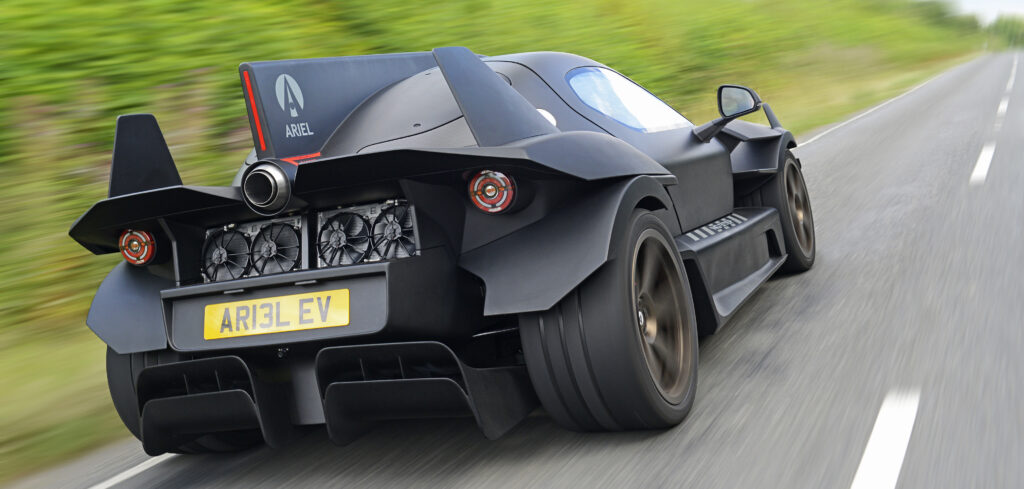Drive systems company GKN Automotive has aided in the development of a 1,180bhp electric powertrain for the new high-performance Ariel Hipercar.
The company carried out testing of the Hipercar’s electric drive units (EDUs) at its Abingdon Innovation Centre in the UK on a specially designed test rig capable of replicating rigorous real-world on-car demands and dynamics. Tests also included simulated laps of race circuits.
Due to the extremely high power output of the Ariel Hipercar, GKN Automotive had to develop a test system that could retain control of the drive motors during the tests and simulations.
The Abingdon Innovation Centre test facility was developed with support and funding from the Advanced Propulsion Centre (APC), a non-profit organization that grants funding to UK research and development projects that are developing low-carbon-emission powertrain technologies.
Highly accurate tests of the Hipercar’s drivetrain were conducted, enabling GKN Automotive engineers to meet the required standards and ensure the powertrain delivers maximum efficiency.
Sean Worrall, senior product manager at GKN Automotive, commented, “With the support of the APC, the Hipercar consortium has been able to create an amazing high-performance EV sports car. We’ve used the knowledge gained in developing the test rig and controlling such high performance to test high-power machines for high-performance electric SUVs, exporting this knowledge across the world to other GKN Automotive sites.”
“The testing and development work undertaken by GKN Automotive for Ariel on the Hipercar’s electric powertrain has been crucial in proving its suitability, performance and reliability for the final production model,” said Simon Saunders, founder and director of Ariel. “GKN Automotive’s experience and expertise combined with their aptitude for innovation are what got the bespoke test rig designed and built – that resource has been incredibly valuable during this project.”
“The unveiling of the Hipercar is a major milestone for a project that is several years in the making,” added Philippa Oldham, stakeholder engagement director at the Advanced Propulsion Centre. “The process of developing late-stage technologies is fraught with complexity, which the Hipercar project has managed to navigate with support from APC. The value of this project goes much deeper than the cutting-edge vehicle on display; government investment provides emerging cleantech innovators with a platform for success, at a time when the UK is working to proactively secure its position as a key player in the electric vehicle revolution. The fact that the businesses involved in this project have gone on to achieve so much is testament to its success in creating highly skilled jobs and returns for the economy.”




